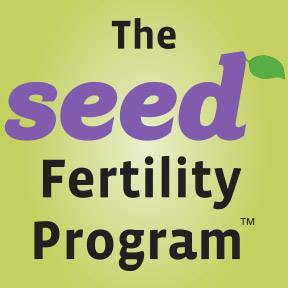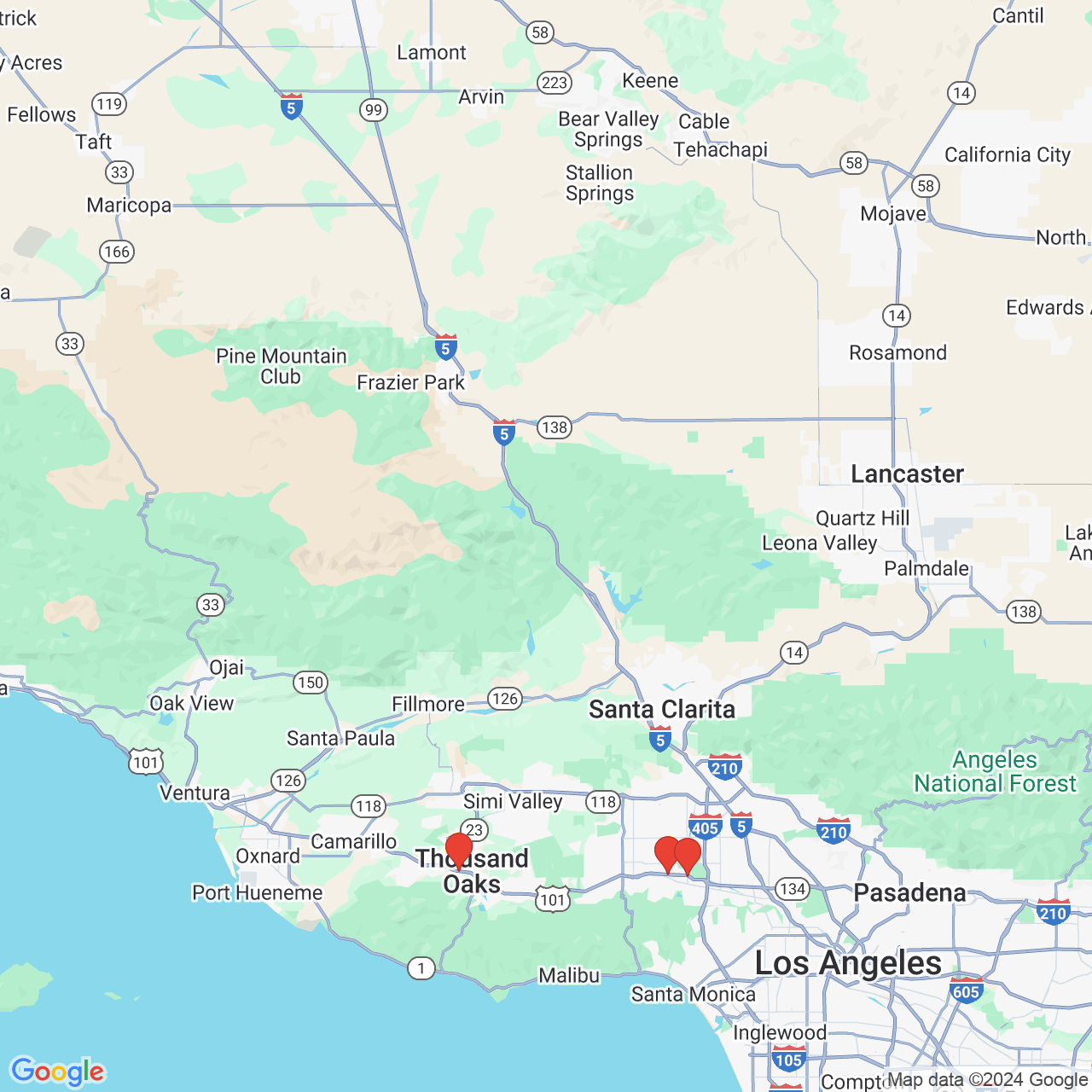Building Families, Nurturing Futures at Our Infertility Clinic
The Center for Fertility and Gynecology was established in Los Angeles, California in 1987 by Dr. Michael Vermesh as the "USC Gynecology Group." The Center was relocated to Encino in 1990 where it was renamed the "Center for Fertility and Gynecology."

The newly renamed practice continued to enjoy exceptional success rates which helped to develop its reputation as one of the premiere fertility centers on the west coast. In 1996, the Center once again outgrew its physical plant and relocated to 18370 Burbank Blvd in Tarzana, where we still have an office today. With exceptional success rates and a willingness to treat even the most difficult cases, we have grown to become the largest fertility center in the San Fernando Valley, and have made tremendous strides in helping patients both locally and abroad, achieve their dreams of having families. In May of 2009, the office underwent its most recent reincarnation with a complete modernization and redecoration. The office now truly embodies the relaxed, professional and supportive manner in which we practice medicine.

We have remained and always will be true to our philosophy of providing cutting-edge medical care in an environment that supports each couple individually. Our physicians offer couples the best possible evaluation, diagnosis, and treatment of both female and male infertility in a patient-oriented, supportive setting. Non-traditional families are welcomed and we offer a full range of services, such as an egg donation program and egg freezing, to meet their unique needs.
We Can Help Build Your Family
We Can Help Build Your Family
Our Success Rates
The percentage of cycles resulting in live births at our center is consistently above average. The following is a summary of our percentage of in vitro fertilization (IVF) cycles (embryo transfers) resulting in live births from 2022, the most recent year available. These statistics are published by the governmental agency responsible for overseeing fertility practices, the Centers for Disease Control (CDC).
Our IVF Laboratory Center
In 2002, our embryology/andrology laboratory was built from the ground up in an exclusive medical facility. Sparing no costs, no detail was left unnoticed in the construction of the lab, including a separate back-up power supply unit in addition to the facility's own generators, to ensure no harm to incubated embryos in the event of a power failure.
A specialized system of sensors maintains uniform pressure, temperature, and ventilation settings to optimize stable culture conditions for embryos. High air exchange per unit time, and a specifically designed anti-contamination working suite, ensure an environment of maximum sterility.
The laboratory is fully equipped with state of the art instrumentation enabling our embryologists to perform the most advanced procedures in Assisted Reproductive Technology (ART), including Intracytoplasmic Sperm Injection, Assisted Hatching, and Pre-implantation Genetic Diagnosis.
About The Center for Fertility and Gynecology
About The Center for Fertility and Gynecology
Our Lab Director, Dr. Vermesh is joined by Dr.Natalia Belova, Anne Wang, Melissa Burton and Michael Eagle who together make up one of the most experienced embryology teams in Southern California. With over 30 collective years of experience in ART, our team's strict quality control standards have earned our laboratory a full certification with distinction by the College of American Pathologists, a prestigious accreditation shared only by a handful of embryology labs in Southern California.
Superior embryo culture conditions, cutting edge technology, and an experienced laboratory staff have allowed our center to reach unprecedented pregnancy success rates.


Professional Affiliations
The Center for Fertility and Gynecology works in conjunction with the following organizations to help further fertility advancements:
 American Association of Gynecologic Laparoscopists (AAGL) is a non-profit organization dedicated to women's health and the improvement of endoscopic surgery and research. Established in 1971, the society has been committed to the education of physicians and surgeons in the field of minimally-invasive gynecologic surgery.
American Association of Gynecologic Laparoscopists (AAGL) is a non-profit organization dedicated to women's health and the improvement of endoscopic surgery and research. Established in 1971, the society has been committed to the education of physicians and surgeons in the field of minimally-invasive gynecologic surgery.
![]() American College of Obstetricians and Gynecologists (ACOG) — with a membership of 40,000 physicians — is the nation's leading group of professionals providing health care for women. It is a private, voluntary, nonprofit membership organization.
American College of Obstetricians and Gynecologists (ACOG) — with a membership of 40,000 physicians — is the nation's leading group of professionals providing health care for women. It is a private, voluntary, nonprofit membership organization.
 American Medical Association (AMA) – Established in 1847, the AMA is one of America's oldest medical societies. As the national professional organization for all physicians, the AMA speaks out on issues important to patients and the nation's health, helping shape medical guidelines and practices.
American Medical Association (AMA) – Established in 1847, the AMA is one of America's oldest medical societies. As the national professional organization for all physicians, the AMA speaks out on issues important to patients and the nation's health, helping shape medical guidelines and practices.
 American Society for Reproductive Medicine (ASRM) is an organization devoted to advancing knowledge and expertise in reproductive medicine and biology. The ASRM is a voluntary non-profit organization. Members must demonstrate the high ethical principles of the medical profession, evince an interest in reproductive medicine and biology, and adhere to the objectives of the Society.
American Society for Reproductive Medicine (ASRM) is an organization devoted to advancing knowledge and expertise in reproductive medicine and biology. The ASRM is a voluntary non-profit organization. Members must demonstrate the high ethical principles of the medical profession, evince an interest in reproductive medicine and biology, and adhere to the objectives of the Society.
![]() Centers for Disease Control - Reproductive Health is a repository of news and information regarding the current state of reproductive medicine and practices. In the field of reproductive health, the CDC publishes yearly pregnancy success rates from registered fertility clinics nationwide. Because reproductive health issues are a focus of many projects within CDC, this site features information from various programs, not just the Division of Reproductive Health
Centers for Disease Control - Reproductive Health is a repository of news and information regarding the current state of reproductive medicine and practices. In the field of reproductive health, the CDC publishes yearly pregnancy success rates from registered fertility clinics nationwide. Because reproductive health issues are a focus of many projects within CDC, this site features information from various programs, not just the Division of Reproductive Health
 College of American Pathologists is the principal organization of board-certified pathologists, serving and representing the interest of patients, pathologists, and the public by fostering excellence in the practice of pathology and laboratory medicine.
College of American Pathologists is the principal organization of board-certified pathologists, serving and representing the interest of patients, pathologists, and the public by fostering excellence in the practice of pathology and laboratory medicine.
 Pacific Coast Reproductive Society - A voluntary, nonprofit organization deeply rooted in the continuing education (CME) of professionals in Reproductive Medicine.
Pacific Coast Reproductive Society - A voluntary, nonprofit organization deeply rooted in the continuing education (CME) of professionals in Reproductive Medicine.
![]() RESOLVE: The National Infertility Association is a nonprofit organization founded in 1974 by Barbara Eck Menning, is to provide timely, compassionate support and information to people who are experiencing infertility and to increase awareness of infertility issues through public education and advocacy.
RESOLVE: The National Infertility Association is a nonprofit organization founded in 1974 by Barbara Eck Menning, is to provide timely, compassionate support and information to people who are experiencing infertility and to increase awareness of infertility issues through public education and advocacy.
 Society for Reproductive Endocrinology and Infertility (SREI) is a non-profit organization dedicated to promoting the growth, influence, and interests of the subspecialty of Reproductive Endocrinology and Infertility. The society supports and nurtures new initiatives in basic and clinical research in the field or Reproductive Endocrinology and Infertility.
Society for Reproductive Endocrinology and Infertility (SREI) is a non-profit organization dedicated to promoting the growth, influence, and interests of the subspecialty of Reproductive Endocrinology and Infertility. The society supports and nurtures new initiatives in basic and clinical research in the field or Reproductive Endocrinology and Infertility.
 The Seed Fertility Program is a self-study online course that addresses the physiological needs of the fertility cycle and provides daily guidance for patients who want to take a more proactive role in their fertility. Created in 2010 by fertility acupuncturist Danica Thornberry, The Seed Program teaches patients specific foods and behaviors to implement at specific times throughout the cycle for an improved outcome.
The Seed Fertility Program is a self-study online course that addresses the physiological needs of the fertility cycle and provides daily guidance for patients who want to take a more proactive role in their fertility. Created in 2010 by fertility acupuncturist Danica Thornberry, The Seed Program teaches patients specific foods and behaviors to implement at specific times throughout the cycle for an improved outcome.







